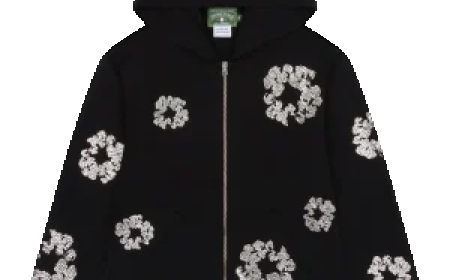Why Woven Material is Essential for High-Quality FIBC Bulk Bags and Polypropylene Packaging
Learn why woven material is vital to sustainable FIBC bulk bags and polypropylene packaging. Learn how it ensures strength, flexibility and product protection.

In industries where transporting and storing bulk products is a daily requirement, the quality of packaging materials plays a crucial role. Among the different materials used, woven material stands out for its strength, flexibility, and reliability. Whether its for FIBC bulk bags or polypropylene bags, woven fabric has become the standard due to its proven performance across various industrial applications.
This blog explores why woven material is the preferred choice and how it supports safe and efficient bulk packaging.
Understanding Woven Material
Woven material is made by interlacing threads in a consistent pattern, creating a fabric known for its durability and flexibility. In the field of packaging, this fabric is typically produced using polypropylene, a lightweight and robust plastic polymer.
The woven structure creates a balance between strength and flexibility, making it suitable for packaging solutions that need to hold substantial weight while withstanding transportation and handling stresses.
Benefits of Woven Material in FIBC Bulk Bags
FIBC bulk bags, also known as Flexible Intermediate Bulk Containers, are designed to handle large volumes of materials. These bags are commonly used to transport dry products such as chemicals, grains, minerals, and construction materials. The woven material used in their construction offers several key advantages:
1. High Load-Bearing Capacity
The interwoven threads provide excellent tensile strength, allowing these bags to carry heavy loads without risk of tearing. Despite their ability to hold large volumes, the bags remain lightweight and easy to handle.
2. Resistance to Wear and Tear
FIBC bulk bags are frequently subjected to rough handling, exposure to sunlight, and fluctuating weather conditions. Woven polypropylene material offers resistance to abrasion and UV radiation, increasing the lifespan of the bags.
3. Customizable Features
The woven construction allows for additional features like coatings, liners, or anti-static properties, depending on the needs of the product being transported. This flexibility ensures that the packaging can be adapted to various industries.
Importance of Woven Material in Polypropylene Bags
Polypropylene bags are commonly used for packaging smaller quantities of goods, from agricultural products to industrial raw materials. The use of woven fabric in these bags ensures they remain durable and reliable during storage and transit.
1. Moisture and Dust Resistance
With the option of lamination or inner liners, woven polypropylene bags can offer protection against moisture, dust, and contamination. This is especially important when storing sensitive products.
2. Enhanced Durability
The woven pattern helps prevent punctures and reduces the risk of breakage. This ensures goods are safely transported without damage.
3. Versatility for Various Applications
These bags are suitable for a wide range of uses, including agriculture, chemicals, food products, and building materials. Their adaptability is largely due to the strength and flexibility of woven fabric.
Why Woven Material Remains a Preferred Choice
Industries prioritize packaging solutions that offer reliability, cost-efficiency, and safety. Woven material fulfills these requirements by providing a durable yet lightweight option for both large-scale and small-scale packaging.
Additionally, woven polypropylene fabric allows for efficient stacking, easier transportation, and reduced product loss, making it a practical choice in logistics and supply chains.
The Role of Manufacturing Quality
The quality of woven material depends not just on the raw materials used but also on the manufacturing process. FIBC bulk bag manufacturers often apply strict quality control measures to ensure the woven fabric meets safety and performance standards. Factors like thread count, weaving pattern, and coating quality contribute to the overall strength and reliability of the final product.
Choose Reliable Woven Packaging Solutions
When selecting bulk packaging solutions, the quality of the woven material plays a direct role in operational success. Investing in premium woven polypropylene bags and FIBC bulk bags reduces risks, improves efficiency, and enhances product safety during transit.
At Anita Plastics, we specialize in providing high-quality woven material solutions tailored to various industrial needs. From durable FIBC bulk bags to versatile polypropylene bags, our products are designed with precision, durability, and performance in mind.
Contact us today for personalized support!
Conclusion
Woven material has become a fundamental component in the packaging industry, particularly for FIBC bulk bags and polypropylene bags. Its combination of strength, flexibility, and adaptability ensures that bulk goods are handled safely and efficiently, across industries ranging from agriculture to construction.
For businesses handling bulk materials, understanding the importance of woven fabric can help in choosing the right packaging solutions that meet operational demands without compromising on quality.


















